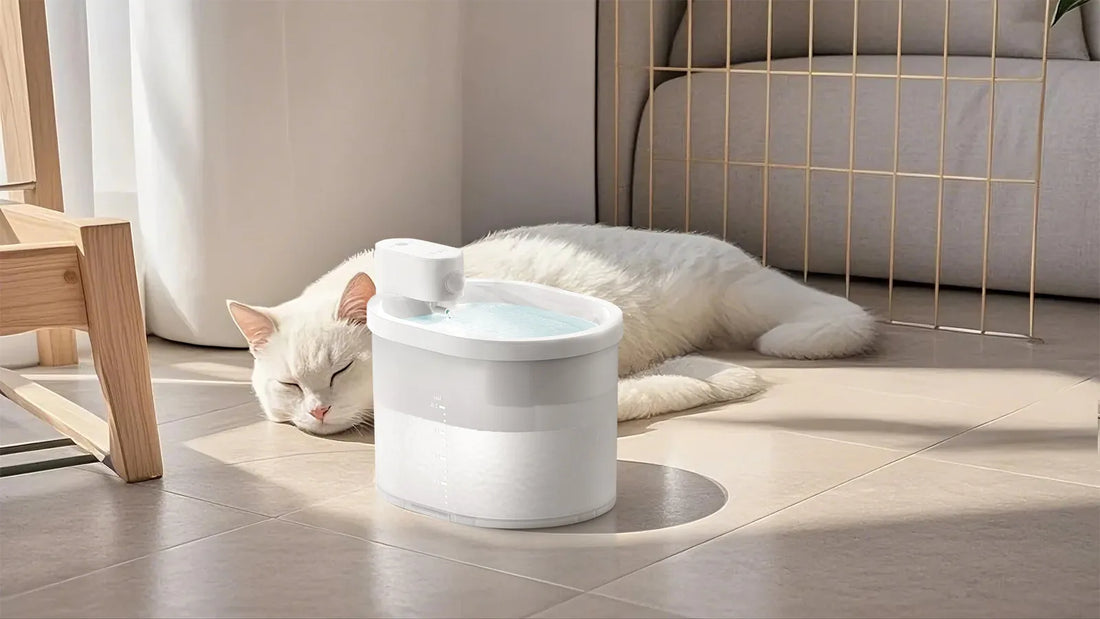Water is essential for all living beings, and cats are no exception. However, just like humans, cats can sometimes drink too much water, which can be a sign of underlying health issues. Understanding the balance between proper hydration and overhydration is crucial for every cat owner. This article delves into the reasons why a cat might drink excessive amounts of water, the potential health risks, and how to monitor your cat's water intake effectively.
Why Do Cats Drink Water?
Cats, like all animals, need water to survive. Water helps regulate body temperature, aids in digestion, and facilitates the removal of waste through urine. While cats are known for their low thirst drive compared to other animals, they still require a consistent intake of water to maintain their health. Most cats get a significant portion of their water from their food, especially if they consume wet food. However, dry food diets may require them to drink more water to compensate for the lack of moisture in their meals.
What Constitutes Excessive Water Consumption in Cats?
Determining whether your cat is drinking too much water can be tricky, as the amount of water a cat needs varies based on factors like age, weight, diet, and activity level. On average, a healthy cat should drink about 60-80 milliliters of water per kilogram of body weight per day. If you notice your cat drinking significantly more than this, it could be a sign of polydipsia, the medical term for excessive thirst. Monitoring your cat's water bowl and observing any sudden changes in their drinking habits can help you identify potential issues early.
Common Causes of Excessive Water Consumption in Cats
There are several reasons why a cat might start drinking more water than usual. Some of the most common causes include:
- Diabetes Mellitus: Cats with diabetes often experience increased thirst as their bodies try to flush out excess glucose through urine.
- Kidney Disease: Chronic kidney disease is a common condition in older cats, and one of its primary symptoms is increased water consumption.
- Hyperthyroidism: An overactive thyroid gland can lead to increased metabolism and, consequently, increased thirst.
- Urinary Tract Infections (UTIs): Infections in the urinary tract can cause discomfort and lead to increased water intake as the cat tries to alleviate the symptoms.
- Dehydration: Ironically, dehydration can cause a cat to drink more water as their body attempts to rehydrate.
Health Risks Associated with Excessive Water Consumption
While it might seem harmless, excessive water consumption in cats can lead to several health risks. Overhydration can dilute the electrolytes in a cat's body, leading to imbalances that can affect their heart and muscle function. Additionally, if the underlying cause of increased thirst is a medical condition like diabetes or kidney disease, untreated, it can lead to severe complications, including organ failure. Therefore, it's essential to address excessive water consumption promptly and consult a veterinarian if you notice any concerning changes in your cat's behavior.
How to Monitor Your Cat's Water Intake
Keeping track of how much water your cat drinks can help you identify any abnormalities early. Here are some tips for monitoring your cat's water intake:
- Measure the Water: Use a measuring cup to pour a specific amount of water into your cat's bowl and check how much is left at the end of the day.
- Observe Behavior: Pay attention to how often your cat visits the water bowl and how much they drink each time.
- Check for Other Symptoms: Look for signs like increased urination, weight loss, or changes in appetite, which can accompany excessive thirst.
- Consult a Veterinarian: If you're unsure whether your cat's water intake is normal, seek professional advice.
Preventing Overhydration in Cats
Preventing overhydration in cats involves ensuring they have access to fresh, clean water at all times while also monitoring their intake. If your cat is on a dry food diet, consider incorporating wet food to increase their moisture intake naturally. Additionally, regular veterinary check-ups can help detect any underlying health issues that might lead to excessive thirst. By staying vigilant and proactive, you can help your cat maintain a healthy balance of hydration.
Understanding your cat's water consumption is a vital aspect of their overall health. While it's essential to ensure they stay hydrated, excessive water intake can be a red flag for underlying health issues. By monitoring their habits, recognizing the signs of overhydration, and seeking veterinary care when necessary, you can help your feline friend live a long, healthy, and happy life. Remember, a well-hydrated cat is a happy cat, but balance is key.













